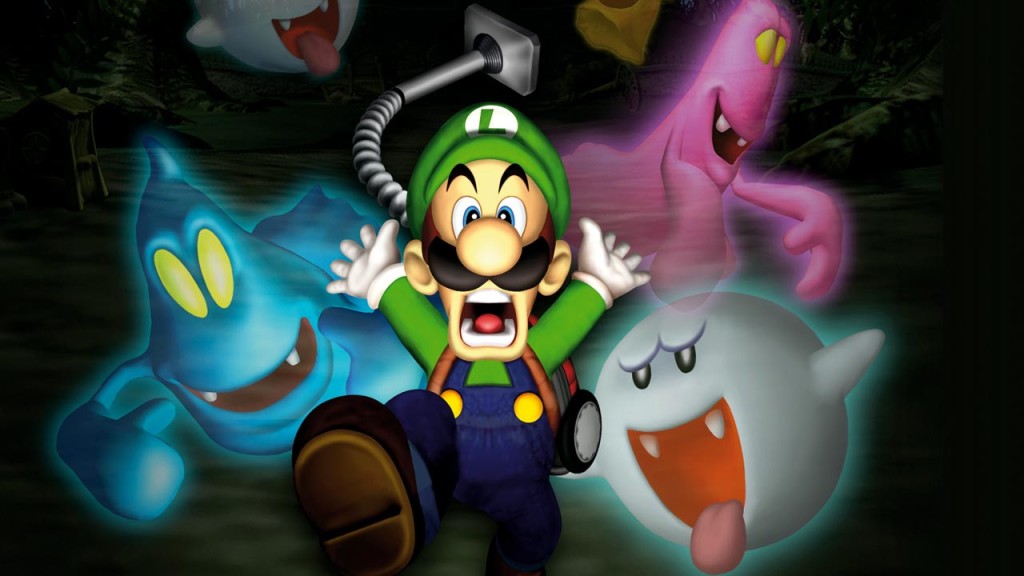Retro Game Review: Luigi’s Mansion
Nintendo is a company that has always had a special place in my heart. My first video game console was the Nintendo Gamecube, and I still play games on it from time to time. Though as of late, Nintendo has seemed to have lost some of its innovative spirit. They have been playing it safe with most of their releases in the past couple of years, which leads to the same type of releases. They haven’t taken any major risks in a long time. Back when the Gamecube was the current generation, we had the likes of Super Mario Sunshine (a personal favorite), The Legend of Zelda Wind Waker, Eternal Darkness and many other vasty unique games. So I decided to venture back to an era where Nintendo decided to take bigger risks, and played through Luigi’s Mansion, in anticipation for the recently released 3DS sequel.
Luigi’s Mansion was originally released in 2001. Even so, the game holds up very well. In terms of the presentation, visuals still impress and the sound effects help create a wonderful, quirky atmosphere. Luigi will get scared when in the dark and start to whistle the game’s main theme, scream at the sight of ghosts, and hesitantly open doors. Little attention to detail like this truly adds to the experience. The interaction between Luigi and the ghostly environment makes the situation a lot more believable and gives Luigi a relatable personality and character. This game was released 12 years ago, yet many games released today have less interaction.
The gameplay in Luigi’s Mansion is solid, with easy to learn mechanics. You use a specialized vacuum, the Poltergust 3000, to catch ghosts, taking an obvious nod to the Ghostbusters film. Catching ghosts is easy to do, and you quickly learn the best way to catch the various types of ghosts. Luigi’s Mansion does little to change the core gameplay throughout the entire story. It does eventually introduce elemental attacks for your vacuum, but they are rarely used and poorly implemented.
As fun as Luigi’s Mansion is, it has its fair share of shortcomings. The biggest flaw is the fact that the game is not challenging enough. I never once got a game over until the final boss. Any time I came close to dying, I could easily run away from the situation and find health pickups. The game’s length is somewhat of a double-edged sword, it is both a strength and a weakness. The game’s brevity helps to negate the low difficulty. Yet because it is so short, I feel that Luigi’s Mansion cannot fully realize itself and its concepts before it was over. With a larger mansion and longer campaign length, the game could really have felt like an adventure in a spooky mansion. Lastly, I feel that the game could have used a more diverse soundtrack and an occasional change in the soundtrack would have been nice. Although the game is short, so the soundtrack doesn’t overstay its welcome.
Despite its flaws, Luigi’s Mansion is a game that manages to impress 12 years after its release. It’s really nice to play as Luigi in the lead role for a change, taking a break from Mario as the “Nintendo” character. The game offers a truly different experience from what Nintendo usually develops. Luigi’s Mansion wonderfully captures character and environmental interaction, yet suffers from a lack of difficulty and ends before it can reach its full potential. It’s a shame that Nintendo doesn’t take risks like this anymore, and I look forward to playing the recently released sequel.
7.8/10

Bailey is a Senior at Annandale High School. He is the Video Editor-in-Chief, and this is his forth year on staff for The A-Blast. Previously he has been...




